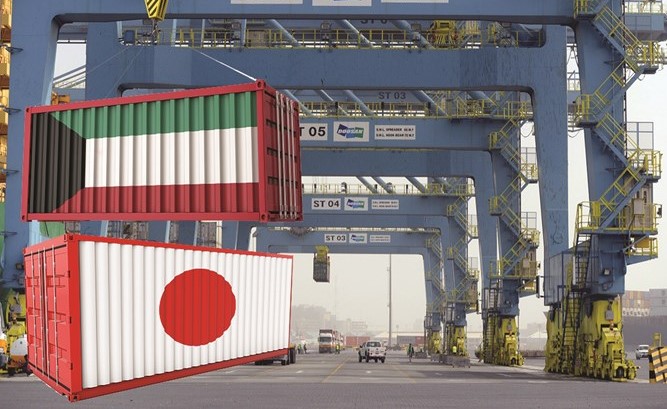Government data released yesterday revealed a concerning trend for Kuwait’s trade surplus with Japan. In November, the surplus dropped by 18.2% compared to the same period last year, reaching 82.5 billion Japanese yen ($574 million). This marks the second consecutive month of decline, which can be attributed to a slowdown in exports.
For almost 16 years, Kuwait has maintained a positive trade surplus with Japan, indicating that the value of its exports has consistently exceeded that of its imports. However, the recent data shows a 10.3% year-on-year decrease in Kuwait’s total exports to Japan, amounting to 109.7 billion yen ($763 million). This decline is the second consecutive one. On the other hand, Kuwait’s total imports from Japan have increased by 26.8% for the 19th consecutive month, reaching 27.2 billion yen ($189 million).
The Middle East as a whole also experienced a decline in its trade surplus with Japan, decreasing by 20.5% last month to a total of 882.3 billion yen ($6.1 billion). The region’s exports to Japan fell by 10.9% compared to the previous year.
Analyzing the data further, it becomes evident that the decline in exports from the Middle East to Japan is largely driven by a decrease in shipments of oil, refined products, liquefied natural gas, and other natural resources. These commodities, which make up 95.4% of the region’s total exports to Japan, decreased by 11.4%. However, the region’s total imports from Japan increased by 25.6%, primarily due to strong demand for cars, machinery, and manufactured goods.
It is worth noting that Japan, as the world’s third-largest economy, recorded a global trade deficit in November for the second consecutive month, amounting to 776.9 billion yen ($5.4 billion). This deficit can be attributed to an 11.9% decrease in imports, driven by lower energy prices, particularly in coal, liquefied natural gas, and crude oil.
The decline in Kuwait’s trade surplus with Japan reflects a broader trend in the Middle East and Japan’s overall trade dynamics. The decrease in exports from the region, especially in natural resources, indicates a potential slowdown in economic activity. On the other hand, Japan’s increasing imports from the Middle East in other sectors suggest a diversification of its economy.
The data serves as a valuable insight into the shifting trade patterns between Kuwait, the Middle East, and Japan. It highlights the importance of monitoring global trade dynamics and adapting strategies to navigate changing market conditions.
Source: TimesKuwait








